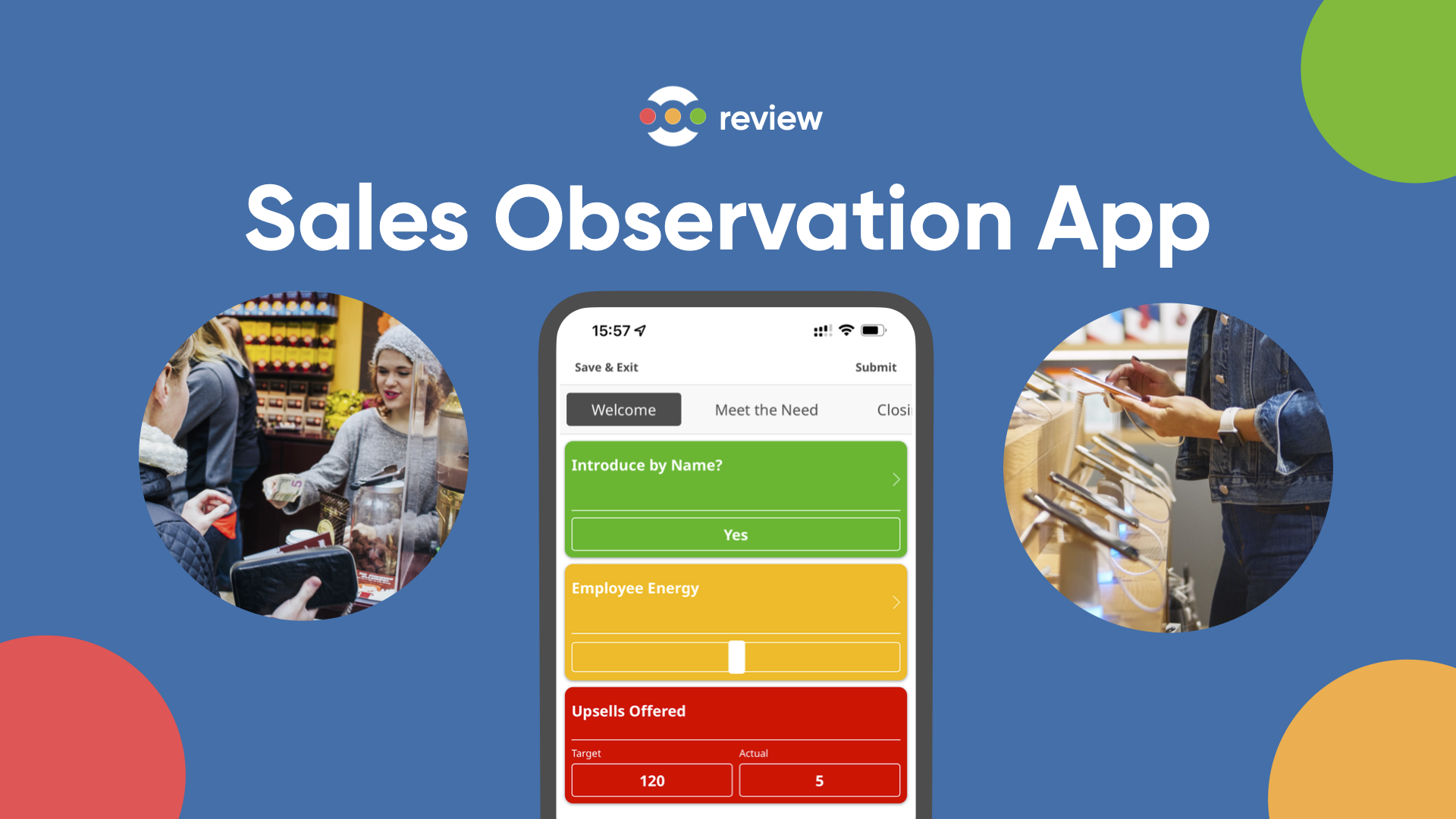Top 10 essential retail skills every sales associate should have (and how to coach them)
Bridging the wide gap between products and consumers, retail sales associates are an integral part of any successful business model. No matter what the inner workings of your company may be, it often comes down to sales associates to represent - and ultimately establish - your professional image to your growing customer base.
There's no surprise that excellent customer service directly impacts sales. A pleasant, comfortable experience opens the door for more lengthy and in-depth discussions in a sales context, making customer information immediately more accessible and, consequently, the customers themselves easier to cater for.
Train your staff … the right way
While it’s known that interpersonal skills are essential in this field, the process of training your staff to master effective communication may require more specific, action-driven pointers to work.
So, what exactly are these skills, and how can we help our salespeople to integrate them into their everyday dialogue?
Here, we’ll go through 10 of the top retail skills every sales associate should master, and how you can help them get there more efficiently.
1. Building rapport
Establishing a bond with a customer is a challenging ask in the world of sales; while it’s certainly not realistic to expect a deep connection to be formed, building rapport with customers is a great first step to establishing a comfortable and trusting foundation on which to build.
Entertaining casual, friendly conversation is an especially good place to begin, as it quickly transmits a feeling of openness and camaraderie between the two parties. During everyday conversations, however, it's important to have guiding points to turn to - comfortable ways of reminding the customer they are your sales staff's number one priority.
Not sure where to begin? Try asking for your customers' names (and take note!). Calling customers by their name one or two times throughout the conversation reinforces their value to the sales staff, and encourages the continued friendly atmosphere. Thoughtful, intentional details such as these are an efficient way of displaying commitment and winning points.
There are nuanced techniques taught in retail coaching, but it's always good to remember: people are attracted to people! It's about making sure the customer feels comfortable, welcome, and engaged.
2. Obtaining knowledge
Knowing products inside and out is about way more than saving time (though this is certainly a valid perk, too!).
Being able to confidently and clearly explain the details of various products to customers establishes sales associates' roles as the experts in the relationship, effectively bringing validity to their ultimate recommendations and the evidence to back them up.
Not only does having product knowledge allow for the efficient use of the customers’ time, but it is also the necessary basis on which sales associates will be able to construct and refine other skills. Though learning the technical details of products is necessary, experience using them can be a game-changer when making sales, allowing for a more personal account and understanding of everything that your product can provide.
In other words, encourage your sales staff to use and benefit from the product that they are selling!
A balance of the personable and the professional is the ideal blend of successful sales associates - open and warm, knowledgeable and detail-oriented.
3. Practicing active listening
Listening to customers is certainly a given in any situation, but equally as important is making sure they feel heard as well.
Active listening is all about making the customer feel valued and prioritised in the environment they find themselves in - especially if it is a fast-paced, chaotic one. While it is possible to accurately listen without these cues, going the extra mile to show attentiveness is a particularly special skill to have when it comes to the retail market.
Translated into retail coaching exercises, this can mean honing down on a few main skills that can lead to success:
Consistent, friendly eye-contact
Subtle nods
Verbal affirmations
Personalised, targeted questions
None of these actions needs to be overt to work - simple, delicate acknowledgements such as the ones above are all it takes to assure customers that they are being heard and helped by the staff members they are interacting with.
Encourage your sales associates to keep these cues in mind, paying attention to their conversations with partners, co-workers, and friends. It won’t take much to see how these gestures are an essential part of meaningful and mutually beneficial exchanges.
4. Adapting and thinking on your feet
Mastery of the product catalogue and active listening skills come together to form the next point on the list of retail sale skills.
While reciting every technical aspect of a product from memory can be impressive, it won't necessarily translate seamlessly into a customer interaction or a sale; customers will gravitate towards products that most favourably fulfil their needs.
As retail customers continue to talk about and expand on their ideal requirements for a product or service, great sales associates will adapt their questions and suggestions along the way, finding the best fit for the customer without wasting any time.
5. Focusing on the solution
When looking to make a purchase, customers are most likely seeking the solution to a consistent problem or nuisance in their lives.
Retail coaching 101: Sell the solution to the customers problem! By adjusting the sales pitch to the specific problem a customer presents, sales associates can entirely personalise the customer experience and craft a far more pleasant, appealing pitch.
During a sale, the stand-alone qualities of a product don’t compare to the situation-specific ways the product will actively improve the customer's life and solve their problem efficiently.
Reference questions can be a great way to apply this concept in retail coaching, making it easy and eventually natural to inquire each customer about their needs and expectations. These questions will depend on the product or service being offered in the store and can include concepts such as frequency of use and general purpose.
It is important that the customer feels immersed in an effortless experience - one that can reflect how the company and its products will continue to positively impact their day-to-day, just like the product being sold.
6. Upselling organically
Amongst the collection of tried-and-true retail sales skills lies upselling - the ability to persuade customers to include additional products or services in their order.
The art of upselling may be nuanced, but it is not entirely mysterious. Ultimately, upselling follows the same principles of a regular sale - the ‘trick' is to make sure that it makes sense in the context in which you are offering it.
There are always good reasons behind the features or extra products sales associates are encouraged to upsell, and that is where the focus should be. Upselling can come organically if the sales associate has taken the time to understand the particular needs of the customer they are interacting with.
Once trust, rapport, and customer needs have been established, it's time to bring out targeted suggestions, products, and customized packages. Rather than seem pushy, unwelcome, or unnecessary, upselling this way can ensure the customer sees the value of these additional suggestions.
Keep it casual and simple, always focusing on reinforcing how these features and additions play a role in solving the problem.
7. Learning to assume the sale
Sales take effort and time. Waiting for customers to process information and make a final decision regarding their purchase isn't always easy.
Retail coaching can aid in this aspect by switching the focus from wanting to convince to wanting to explain. By interacting with the customer while assuming that the sale has already successfully been made, the subtext of the conversation switches into something far more informative and natural.
While this small mental shift encourages a more appealing conversation that might not seem obvious at first, simulating these conversations is a great way to get your staff acquainted with the idea.
Ultimately, it's essential to remember that retail sales skills build off of each other constantly in the workplace.
8. Studying Common Objections (and Competitors!)
In the same way that customers arrive with their expectations and needs for a certain service or product, they also arrive with the awareness of the things that are holding them back.
Keeping track of common customer concerns and questions can be a powerful tool for a prepared sales staff. Having concise, compelling, and logical reasons to back your product on the go can be the difference between making a sale and dealing with an indecisive customer who isn’t quite sold.
Likewise, it is also beneficial to make sure your sales staff is always equipped with current knowledge about relevant competitors. That way, any mention of similar competing products can become just another way your company can stand out and make a sale.
9. Asking for the sale
It's all in the ask! After all of the hard work has been put in, the time has arrived to close the deal.
This step can be intimidating, but it's time to bring out the clichés - practice does make perfect. Getting comfortable asking for the sale not only prompts the customer to make their decision but allows them to bring up any additional questions or concerns that might have gone unanswered in the process.
Once again, retail sales skills come down to creating an open and encouraging environment where the customer feels prioritised.
“64% of staff don’t ask for the sale, they build rapport, sell the benefits, but fail to ask: are you ready to buy today?”
In retail, there are very few second chances, when the customer walks out the door, the sale is lost. No chance to email or phone. Use our retail sales observation and coaching app to observe and coach your retail staff to sell more and deliver better customer service.
10. Training, hands-on
Beyond any particular methods or books, your sales staff's hands-on customer experiences are the most valuable asset in the retail coaching toolbox. Basing newfound techniques and guiding points on real-life examples is the ideal way to refine any learned skills.
By witnessing how these strategies work first-hand, sales associates can become easily accustomed to implementing them in increasingly natural ways.
Wrapping up
Effective retail coaching should not be limited to concepts and abstract skills. Rather, interpersonal capabilities - the very basis of a sales staff's role - should work actively to inform the wide array of other necessary strengths in the process.
Explicit tips and questions, for example, are practical training methods that can successfully translate into customer interactions.
Ultimately, properly training your staff to become acquainted with some essential sales skills can go a long way in improving your company’s customer experience and, consequently, their purchasing decisions. Get coaching!

